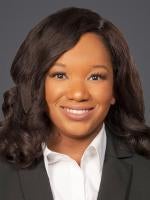On October 29, 2020, the National Urban League and the National Fair Housing Alliance (represented by the NAACP Legal Defense and Education Fund, Inc.) filed a complaint challenging the constitutionality of Executive Order (EO) 13950 and asking for injunctive and declaratory relief. The plaintiffs, on behalf of themselves and a proposed class that includes federal contractors that the EO impacts, brought the lawsuit against the president, the secretary of Labor, and the U.S. Department of Labor (DOL).
The plaintiffs summarize the EO 13950 as follows:
In short, EO 13950 prohibits any federal contractor from engaging in speech, including the provision of certain training to its employees, that may foster belief in certain concepts that President Trump has deemed divisive, but which are widely-accepted, historically-based concepts that have been used for years in trainings and programs across the country in corporate, public sector, and educational settings.
They request relief based on several constitutional principles falling under the First and Fifth Amendments to the United States Constitution.
First Amendment Allegations
The plaintiffs contend that the order prohibits and censors protected speech, chills future protected speech, and vests the DOL with unfettered enforcement discretion in violation of the First Amendment to the United States Constitution.
In support of the censorship argument, the plaintiffs focus on the EO’s restrictions on whether and how covered organizations can include certain topics in their diversity and inclusion trainings. What the EO describes as “divisive concepts” and restricts, the plaintiffs contend, are fundamental to the public interest and constitute protected speech. Pointing to vague language in the order that they argue precludes reasonable employers and the DOL, as the enforcement agency, from understanding what speech constitutes noncompliance, the plaintiffs state that the order provides “no objective way to determine which activities are permitted and which are prohibited, creating a broad chilling effect and inviting unpredictable, uneven, and potentially selective enforcement.” The plaintiffs assert that the order lacks necessary parameters and, consequently, chills protected speech and vests the DOL with “unfettered discretion,” which the First Amendment prohibits.
The complaint sets forth a sequence of events leading to the issuance of EO 13950 that the plaintiffs claim is relevant to the First Amendment analysis and “reveal[s] the order’s clear purpose to restrict, if not, prohibit the expression of viewpoints.”
The plaintiffs also identify several post-order actions that they argue have created “uncertainty and confusion” surrounding the order. In this regard, the plaintiffs reference:
-
public statements by the president of the United States and administration officials;
-
the EO’s “radical departure from other executive orders and from [the] usual procedures [for enacting executive orders]”;
-
the executive branch’s action in discontinuing diversity trainings altogether;
-
the Office of Management and Budget’s September 28, 2020, memo, “Ending Employee Trainings that Use Divisive Propaganda to Undermine the Principle of Fair and Equal Treatment for All”;
-
the Office of Federal Contract Compliance Programs’ (OFCCP) October 7, 2020, frequently asked questions and the agency’s October 22, 2020, request for information.
The plaintiffs conclude that the order even threatens to chill speech that the order permits “because many federal contractors will choose to err on the side of caution and decline to discuss any matters that even remotely bear on issues of race or sex, for fear of violating the broad prohibitions in the Order.”
Fifth Amendment Allegations
The plaintiffs contend that the same facts and authorities underlying the First Amendment claim also establish Fifth Amendment violations. The plaintiffs claim that the EO is “unconstitutionally vague” and deprives people of color, women, and the LGBTQ community of equal protection and violates their due process rights. They argue that “[r]ace and sex-based discrimination against individuals who are people of color, women, and/or LGBTQ community were [sic] a substantial or motivating factor behind the issuance of EO 13950, in violation of the Fifth Amendment.” The complaint alleges that the order’s stated rationale is merely “pre-textual and meant to obfuscate its impermissible discriminatory purpose,” pointing to facts supporting the First Amendment analysis, the inconsistency between the order’s stated goals for workforce economy and efficiency and its effect to the contrary, and the foreseeable certainty of its disparate impact on people of color, women, and/or LGBTQ individuals.
Takeaways for Employers
This lawsuit and other potential legal challenges to EO 13950 are significant in a number of respects.
-
The order does not apply to contracts executed before November 22, 2020. In the meantime, lawsuits like this one signal to companies (and their employees) that there is some doubt about the order’s constitutionality, accuracy, enforceability and impact. The present legal challenge also highlights that there is at least some possibility the order will be struck down or modified before OFCCP has a meaningful opportunity to enforce it. To that extent, companies may conclude that overhauling their diversity programs in response to the order would be premature.
-
Constitutional challenges may bring to the surface the level of public concern over a statute, ordinance, or executive order. An organization’s internal departments may benefit from context related to the possible views of EO 13950 of their markets (e.g., customers, clients, communities). To the extent this complaint’s arguments align with company-stated values, this development may address concerns regarding a company’s possible withdrawal from diversity and inclusion efforts.
-
A complaint seeking to strike down the order may result in disclosure of additional information about how the administration intends to apply the order. At a minimum, employers will have more insight than they do now. In addition, the lawsuit may result in an interpretation of the order that clarifies for contractors the scope of their trainings and whether they can continue (even if they require some modifications).
Guidance and legal information about EO 13950 is evolving quickly, and employers can expect many further developments in the coming days and weeks.




 />i
/>i

